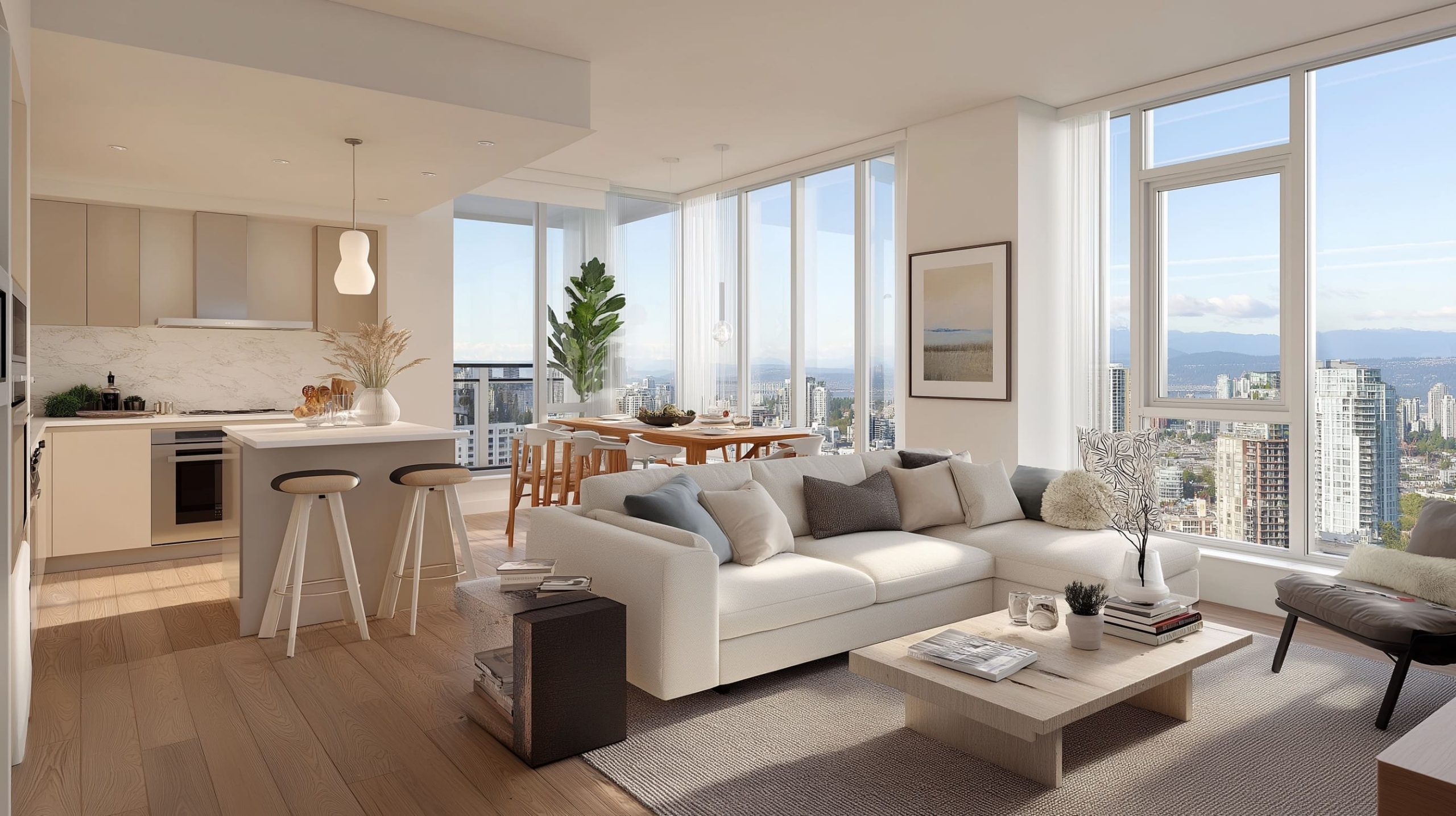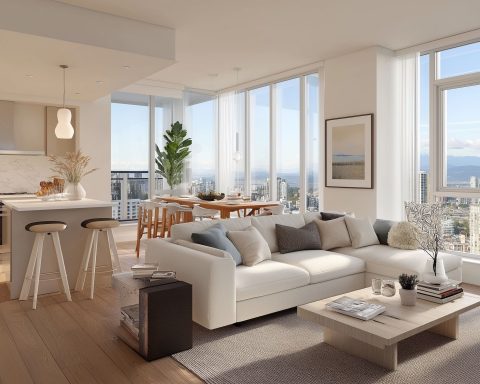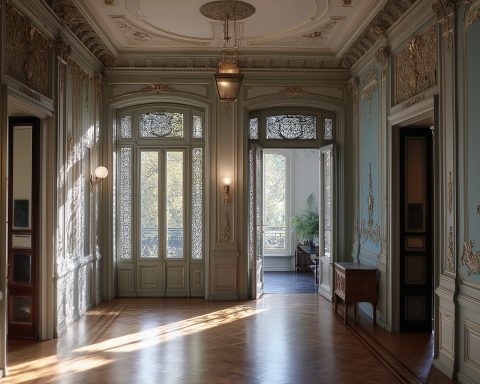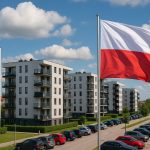Current Market Conditions in 2025
Vancouver’s real estate landscape in 2025 is marked by high inventory and cooling prices in the residential sector, set against a backdrop of a resilient but evolving commercial market.
Residential Market (2025): The Greater Vancouver housing market has shifted from the frenzied seller’s market of previous years into more balanced or even buyer-favored territory. Home sales have slowed – year-to-date transactions in early 2025 were among the weakest in a decade storeys.com – and active listings have swelled to multi-year highs. In May 2025, there were over 17,000 active listings in Metro Vancouver, up 26% from a year earlier and the highest inventory level since 2016 wowa.ca. This surge in supply, combined with higher borrowing costs, has eased upward pressure on prices. The benchmark home price for all property types in Metro Vancouver sits around $1.18 million, which is about 2.9% lower than a year ago wowa.ca. Average prices have seen an even sharper drop of ~5-6% year-over-year wowa.ca. With sales volumes subdued (May 2025 sales were ~18% lower than May 2024 wowa.ca) and new listings coming in at a steady pace, the sales-to-new-listings ratio has hovered in the low 30% range. This SNLR indicates buyers’ market conditions (far below the 60%+ that denotes a seller’s market) wowa.ca. In short, Vancouver’s residential real estate in mid-2025 is calmer and more negotiable: buyers have regained some leverage, while sellers face a more price-sensitive market after years of relentless growth.
Commercial Market (2025): Vancouver’s commercial real estate sector has demonstrated resilience amid the economic headwinds. Investment activity picked up in early 2025 – about $2 billion in commercial property transactions closed in Q1 2025, a 10% increase year-over-year altusgroup.com altusgroup.com. Investors remain attracted to Vancouver’s fundamentals and long-term growth story, evidenced by the city recently ranking as the top market in Canada for commercial real estate investment sentiment altusgroup.com. That said, different asset classes are experiencing divergent conditions. Office space in Vancouver is grappling with elevated vacancy (availability around 12.4% in early 2025) due to new supply and the persistence of hybrid work altusgroup.com. Landlords report a “flight-to-quality,” as modern Class A offices continue to see positive absorption (seven consecutive quarters as of Q1 2025) and tightening availability, even as older office stock languishes altusgroup.com altusgroup.com. Notably, some under-used office buildings are being repurposed – for example, a 12-storey downtown office tower was sold for conversion into a 180-room hotel altusgroup.com, reflecting an adaptive reuse trend downtown. Retail real estate is on a stronger footing: retail investment volumes surged 140% year-over-year in early 2025 altusgroup.com, as investors target prime shopping strips and grocery-anchored centres. However, uncertainty looms with traditional department stores; the iconic Hudson’s Bay Company filed for creditor protection, and potential store closures could leave big vacancies, forcing landlords to get creative with redeveloping large retail spaces altusgroup.com altusgroup.com. Industrial and logistics properties, long the darlings of Vancouver’s market, have seen a slight softening. Industrial availability has climbed to about 6.0% – the highest since 2010 – as some investors put decisions on hold amid trade uncertainties altusgroup.com altusgroup.com. Even so, demand for warehouses remains fundamentally strong (net absorption is still positive) and Vancouver’s land scarcity ensures industrial real estate remains a valuable long-term play altusgroup.com altusgroup.com. Overall, Vancouver’s 2025 commercial sector is mixed: solid in retail and multifamily rental development, cautiously optimistic in office (for top-tier space), and pausing slightly in industrial – but across the board, the city’s attractiveness to investors and businesses continues to underpin the market’s stability.
Housing Price Trends and Affordability
After a decade of dramatic appreciation, Vancouver’s home prices have recently entered a period of modest correction. From 2005 to 2022, home values climbed exponentially – the MLS benchmark price is over 235% higher than in 2005 (a compound growth of ~6.1% annually) wowa.ca. This long-term surge, fueled by limited land, population growth, and global investment, made Vancouver one of the most expensive housing markets in the world. However, 2022 marked a turning point as interest rates began to rise sharply. By 2023-2024, higher mortgage rates significantly eroded buyer affordability and cooled demand, causing prices to level off and dip slightly. The benchmark composite price in Metro Vancouver peaked in early 2022 and then drifted downward. As of mid-2025, benchmarks are roughly 5–10% below that peak, depending on property type (for example, detached house benchmarks are down ~3.2% year-over-year, condo apartments down ~2.4% YoY) wowa.ca. The average sale price across all home types in Greater Vancouver in May 2025 was about $1.27 million, roughly 6% lower than a year prior wowa.ca. In short, prices have pulled back slightly from record highs, offering a small measure of relief to buyers compared to the frenzy of 2021.
Affordability, nonetheless, remains Vancouver’s greatest challenge. By late 2023, RBC declared the city’s housing market to be in “full-blown crisis” in terms of affordability vancouver.citynews.ca. In fact, it was the most expensive it has ever been to purchase a home in Canada: RBC’s index showed that a typical Vancouver buyer would need over 106% of the median household income just to cover ownership costs on an average home vancouver.citynews.ca. This is an astounding figure – essentially, the representative family cannot afford a Vancouver home unless they devote more than their entire pre-tax income to it. Such extreme cost burdens have only slightly eased with the recent price softening. Even under optimistic scenarios, RBC projected that by 2025 the income required would fall only to mid-2022 levels – still extraordinarily high and barely improving access for most buyers vancouver.citynews.ca vancouver.citynews.ca. Other metrics echo this story: Vancouver’s price-to-income and price-to-rent ratios are among the worst in the world, and it consistently ranks as Canada’s least affordable city for both owning and renting.
The strain is not confined to buyers. Renters face record-high rents and low vacancy. As of early 2024, Metro Vancouver’s rental vacancy rate was around 1.6%, up slightly from near-zero levels but still well below a healthy balance jarmanrealestate.com. This tight market pushed the average monthly rent for a two-bedroom apartment to roughly $2,200 (and over $2,500 for a condo rental) – the highest in the country vancouver.citynews.ca vancouver.citynews.ca. Incomes have not kept pace, so many households are spending far above the recommended 30% of income on housing. These affordability pressures have real demographic effects: younger families and even some businesses are relocating to cheaper regions, and B.C. saw a net outflow of interprovincial migrants in 2023 (over 8,000 more people left for other provinces than moved in) biv.com biv.com. High housing costs are cited as a key reason for this exodus of residents seeking greener (or at least cheaper) pastures biv.com.
In summary, Vancouver’s price trend has recently plateaued after years of growth, but homes are still extremely expensive relative to local incomes. Minor price declines and slight interest rate relief have only marginally improved the situation. Housing affordability in Vancouver will likely remain severely strained without significant changes – a reality acknowledged by economists who warn it could take years of income growth and supply catch-up to restore any semblance of balance vancouver.citynews.ca vancouver.citynews.ca. The current conditions have reined in investor exuberance and prompted policymakers to act (as discussed below), but for the average Vancouverite, the dream of home ownership or affordable rent in the city remains a steep climb.
Investment Opportunities and Risks
Despite the challenges, Vancouver’s real estate market continues to offer opportunities for investors – but they come paired with notable risks. Below is a breakdown of key opportunities and risks in 2025:
- Opportunities:
- Buyers’ Market Conditions: The recent cooling has tipped the scales slightly in favor of buyers, creating an opportunity for those looking to enter the market or upgrade. With higher inventory and motivated sellers, buyers in 2025 can negotiate more favorable prices and conditions than in previous years. For investors, this lull presents a chance to acquire quality properties at a relative discount from peak values.
- Strong Rental Demand: Vancouver’s tight rental market (vacancy ~1-2%) guarantees robust demand for rental units. Investors in purpose-built rentals or secondary suite rentals can capitalize on record-high rents and low vacancy, generating steady cash flow. Long-term fundamentals (steady immigration and limited land) suggest rentals will remain a solid bet. Indeed, developers have been shifting focus toward purpose-built rental projects, attracted by low vacancy and government incentives altusgroup.com altusgroup.com.
- Desirability and Resilience: Vancouver’s global city status, diversified economy, and high quality of life underpin resilient real estate values. The city consistently ranks at or near the top of investor preference surveys in Canada altusgroup.com. This underlying appeal provides confidence in the long-term appreciation of Vancouver property. Even as some markets falter, Vancouver tends to retain its attractiveness to both domestic and foreign buyers (when permitted), acting as a relatively safe haven for real asset investment.
- Emerging Growth Areas: Significant public investments and developments are underway (new transit lines, major redevelopments – see Neighborhood Highlights section). These projects can lift property values in certain neighborhoods. Strategic investors may find opportunity in areas slated for transformation, such as along the Broadway Corridor (new SkyTrain stations) or around master-planned communities (Oakridge, Brentwood, etc.), expecting value uplifts as these areas evolve.
- Risks:
- High Interest Rates & Financing Costs: The era of cheap debt is over, at least for now. Borrowing costs in 2025 are much higher than a few years ago, which cuts into investor profitability. Elevated mortgage rates mean lower leverage returns and stricter qualifying criteria. There’s a risk that if interest rates stay high or rise further, property values could face additional downward pressure (as buyers’ budgets are constrained). This interest rate sensitivity is a key risk factor for Vancouver, which has among the highest debt loads and price levels – making the market acutely sensitive to financing conditions vancouver.citynews.ca.
- Potential for Further Price Correction: While the base case forecast is for stabilization, some analysts warn Vancouver remains at risk of a more significant price correction. If economic conditions worsen (e.g. a recession or further job losses) or if an oversupply builds up, home prices could slide more than expected. A multi-factor risk assessment currently rates Vancouver as a “moderate risk” for a market correction, given its stretched affordability and reliance on continual demand growth mortgagesandbox.com. Investors should be cautious about short-term flips or over-leveraging in case values dip.
- Policy and Regulatory Changes: The market is exposed to government intervention risk. In recent years authorities have not hesitated to introduce taxes, vacancy fees, rent control adjustments, and buying restrictions to curb speculation and address affordability. Examples include foreign buyer bans, higher property transfer taxes for non-residents, and limits on short-term rentals (detailed in the next section). Such measures can impact investor strategies and returns – for instance, stricter rules on Airbnb can reduce expected income for those targeting the tourist rental market. Ongoing policy evolution (e.g. discussions about increasing property taxes on luxury homes or more robust rent control) means investors face regulatory uncertainty.
- Construction and Development Risks: Those investing in development land or new projects face high construction costs and softer pre-sale markets. Construction expenses in Vancouver (labor, materials) have spiked in recent years altusgroup.com. At the same time, pre-sales of new condos have slowed dramatically – in early 2025, new project launches hit record lows as developers held back due to weak buyer uptake mortgagesandbox.com. This environment raises the risk of project delays or cancellations. Investors in development projects should be wary of cost overruns and the possibility that units may take longer to sell or lease up than planned.
- Macroeconomic and Geopolitical Risks: Broader economic trends also pose a risk. Trade tensions (e.g., tariffs affecting B.C.’s export-driven sectors) and global geopolitical instability can trickle into Vancouver’s economy and, by extension, its real estate. For instance, uncertainty around tariffs in 2024-2025 has been cited as one factor causing buyers to hesitate and “sit on the sidelines” despite pent-up demand bcrea.bc.ca bcrea.bc.ca. Any major shock – a global downturn, financial crisis, or even a local earthquake given Vancouver’s seismic zone – could impact property values and liquidity in the market.
Bottom line: Vancouver remains a highly desirable but high-priced market. There are solid opportunities for long-term investors, especially in rental housing and well-located properties, as the city’s enduring appeal and limited supply bode well for future values. However, those opportunities come with non-trivial risks. Prudent investors in 2025 are performing careful due diligence, stress-testing their finances for interest rate changes, and keeping an eye on policy moves. A balanced approach – one that weighs Vancouver’s strong fundamentals against its cyclical and structural risks – is essential for success in this market.
Key Policy Changes and Government Initiatives
In response to affordability concerns and market pressures, all levels of government have implemented policy changes that directly affect Vancouver’s real estate landscape. Below are some of the most impactful recent policies and initiatives:
- Foreign Buyer Ban (Federal): Canada enacted the Prohibition on Purchase of Residential Property by Non-Canadians Act in January 2023, which bars foreign buyers (with limited exceptions) from purchasing residential property in Canada. Initially a two-year ban slated to end in 2025, it was recently extended to January 1, 2027 bcrealestatelawyers.com. This policy was aimed at cooling speculation and demand from overseas investors, particularly in cities like Vancouver that had seen a lot of foreign capital. The ban has contributed to reduced luxury and high-end condo transactions from overseas buyers. (Notably, B.C. already had a 20% foreign buyer transfer tax in Metro Vancouver since 2016, so foreign activity was dampened even before the outright ban.)
- Provincial Housing Supply Act & Zoning Reforms (B.C.): The B.C. government under Premier David Eby has aggressively moved to boost housing supply. In late 2022, the Housing Supply Act set housing targets for municipalities and gave the province power to override local zoning if cities fail to enable enough new homes. Building on that, in November 2023 the province announced sweeping zoning reforms to allow more small-scale multi-unit housing on traditionally single-family lots news.gov.bc.ca news.gov.bc.ca. Under these changes, every municipality in B.C. must permit at least 3–4 housing units on a single residential lot, and up to 6 units on larger lots near frequent transit news.gov.bc.ca. Vancouver, already moving in this direction, aligned its bylaws to comply. These upzoning measures remove “single-family only” zoning, effectively legalizing duplexes, triplexes, fourplexes and more across formerly exclusive neighborhoods. The province’s modeling suggests over 130,000 new small-unit homes could be added in the next 10 years thanks to this initiative news.gov.bc.ca, which will significantly increase supply in urban areas.
- Streamlining Approvals and Red Tape Reduction: Governments have recognized that lengthy permitting processes worsen the housing shortage. Vancouver has notoriously slow permitting. In 2023-2024, the City of Vancouver, with support from federal funds, launched initiatives to streamline rezoning and permitting. The federal government’s $4 billion Housing Accelerator Fund awarded Vancouver $115 million to fast-track development approvals and remove barriers to density pm.gc.ca pm.gc.ca. In exchange, Vancouver committed to enabling 3,200 new units within three years and over 40,000 units in the next decade through measures like zoning bylaw updates, digital permitting, and eliminating public hearing requirements for projects that already fit within approved plans pm.gc.ca pm.gc.ca. Concurrently, B.C. passed legislation in 2023 to speed up local approvals by pre-zoning areas and phasing out case-by-case public hearings for projects consistent with official community plans news.gov.bc.ca news.gov.bc.ca. These efforts collectively aim to shorten construction timelines for new housing.
- Vacancy and Speculation Taxes: To discourage homes sitting empty and to ensure housing is used for locals, several taxes are in effect. Vancouver’s own Empty Homes Tax imposes a 3% tax on the assessed value of homes left vacant more than 6 months a year gvrealtors.ca. (It was temporarily raised to 5%, but that increase was reversed amid compliance concerns lawsonlundell.com lawsonlundell.com.) The provincial Speculation and Vacancy Tax applies in urban regions of B.C., including Metro Vancouver, charging foreign owners and other non-exempt owners who leave properties vacant. As of January 2024, this provincial tax was expanded to 13 additional B.C. communities www2.gov.bc.ca to close loopholes beyond Metro Vancouver. These taxes have pushed many empty units back onto the rental market – Vancouver reports the vacancy tax has helped return thousands of condos to occupancy, adding supply for renters.
- Short-Term Rental Restrictions: Both the province and City of Vancouver have cracked down on short-term rentals (like Airbnb) to protect long-term housing stock. In 2023, B.C. introduced legislation to restrict short-term rentals in cities by increasing fines and enforcement, and by only allowing such rentals in principal residences in most cases. Vancouver already requires short-term rental operators to have a business license and only rent out their primary residence. The provincial move further bolsters these rules. By restricting short-term rentals (which often took entire condos out of the long-term market), thousands of units are hoped to be freed up for local residents vancouver.citynews.ca.
- Tenant Protections and Rental Initiatives: The housing crisis has prompted policies to protect renters. The B.C. government ended rental restriction bylaws in stratas (condo buildings) in late 2022, eliminating any strata rules that disallowed rentals – an effort to open up more rental options in condo buildings lawsonlundell.com. In 2023, B.C. also capped annual rent increases below inflation (e.g. max 2% in 2023, 3.5% in 2024) to prevent huge jumps for existing tenants. The province enacted a Homeowner Protection Period (colloquially a “cooling-off period”) giving buyers of resale homes a few days after an accepted offer to rescind (implemented in 2023) – a measure to temper the feverish bidding wars and give homebuyers a bit of breathing room. Additionally, in 2024 the province moved to stop “renovictions” and unfair evictions by tightening the Residential Tenancy Act vancouver.citynews.ca, making it harder for landlords to evict tenants for minor renovations or to misuse fixed-term lease loopholes.
- Federal Immigration and Housing Alignment: The federal government has maintained high immigration targets (which boost housing demand), but is attempting to align this with housing outcomes. One notable 2024 change was a tweak to immigration policy that temporarily limited international student visa volumes and tied study permits to housing availability, after recognizing that record inflows of students were straining rental markets. While Canada is still targeting significant population growth, there is greater acknowledgement of the need to ensure housing supply keeps up. The federal budget has also introduced incentives like the Tax-Free First Home Savings Account (launched 2023) to help first-time buyers save for down payments, and removed GST (federal sales tax) on new purpose-built rental construction to encourage developers to build rental apartments (enacted in late 2023). These measures are indirectly affecting Vancouver by promoting more supply and assisting buyers.
Overall, the policy environment in 2025 is very activist on housing: governments are intervening more than ever to increase supply and curb speculative demand. The impact of these initiatives will unfold in coming years. Vancouver’s market is already seeing early effects – for instance, more multiplex projects in single-family neighborhoods as zoning relaxes, and a slight uptick in long-term rental listings as short-term rental rules bite. Policymakers have signaled they will continue using every tool available to tackle affordability, so the regulatory landscape remains one of constant change for market participants.
Supply, Demand and Migration Dynamics
The demand-supply balance in Vancouver’s real estate market is heavily influenced by migration trends and construction activity. In recent years, demand has been supercharged by population growth, while housing supply has struggled to keep up.
Population and Migration: Metro Vancouver’s population continues to grow robustly, primarily due to international immigration. British Columbia hit record immigration levels in 2022 and 2023 – the province added about 162,000 new residents from July 2022 to July 2023 alone biv.com. In 2023, over 175,000 people immigrated to B.C. from other countries, a 65% jump from the year before biv.com – a staggering influx that underscores Canada’s high immigration targets (and Vancouver’s status as a desirable destination for newcomers). This wave of newcomers, including immigrants, refugees, international students, and temporary workers, has overwhelmingly concentrated in Greater Vancouver and surrounding metro areas biv.com. At the same time, natural population growth (births minus deaths) is now negative in B.C., and as noted, the province saw a net outflow of residents interprovincially (over 8,000 net left in 2023) as some locals moved to cheaper regions biv.com. The net effect, however, is that Vancouver’s population is at an all-time high and climbing, fueling ongoing demand for housing. The federal government’s plans will continue to bring in a steady stream of immigrants each year, so Vancouver can expect tens of thousands of new residents annually. This keeps underlying demand pressure on the housing market, especially for rental units and starter homes favored by newcomers.
Housing Supply and Development Activity: On the supply side, housing construction has been trying to ramp up, but it’s not meeting the surge in demand. In 2023, Metro Vancouver saw roughly 30,600 new housing units completed biv.com – which was an increase of only 1% over the prior year, and nowhere near enough for the population growth. As one stark illustration, in 2023 there was roughly one new home built for every five new people arriving in B.C. biv.com. This ratio highlights a significant shortfall. The mismatch between housing demand and supply has been years in the making – zoning constraints, lengthy approval processes, labor shortages, and high construction costs have all slowed down how fast new homes come to market.
That said, development activity is now at one of its highest levels ever in Vancouver, at least in the pipeline. In the City of Vancouver, thousands of units are under construction and tens of thousands more are in various stages of planning. The push from government (via the policies mentioned earlier) to allow more density has led to a wave of new proposals. For example, the Broadway Plan (covering the Central Broadway corridor) has unleashed rezoning applications for dozens of mid- to high-rise projects along the new subway line route. City officials report a “flood of tower projects in the pipeline” for Broadway – well over 100 potential towers are in discussion within that area alone cityhallwatch.wordpress.com. Across the city, formerly single-family-only neighborhoods are gradually seeing proposals for multiplexes and low-rise apartments due to the zoning reforms. In addition, Metro Vancouver’s suburbs (Surrey, Coquitlam, Burnaby, etc.) are experiencing construction booms around transit hubs, creating new urban centers that will eventually take pressure off the City of Vancouver proper.
However, despite a strong construction pipeline, short-term supply remains tight. Builders face challenges like rising interest rates (which make financing projects more expensive), inflationary construction costs, and a recent cooling in pre-sale condo buyers. Many developers have become cautious – some projects have been delayed or scaled back. Data from early 2025 showed new project launches at multi-year lows (e.g., virtually zero new condo project launches in January 2025 vs. ~750 units typically launched in a January pre-pandemic) mortgagesandbox.com. This indicates that developers are holding off until market conditions improve. Housing starts in Metro Vancouver actually dipped in 2023-2024 due to these headwinds, particularly in the condo apartment segment cmhc-schl.gc.ca. The Canada Mortgage and Housing Corporation (CMHC) expects only a marginal rebound in housing starts in 2025 in Vancouver, led mainly by rental apartments rather than condos assets.cmhc-schl.gc.ca.
The demand-supply dynamic can be summarized as follows: Vancouver has a structural housing shortage relative to the demand generated by its population and economy. Migration-driven demand is consistently outpacing new supply, contributing to the high prices and low vacancies. Even with a record number of cranes on the skyline, the region is playing catch-up from years of underbuilding. Over the next few years, if the various policy measures are effective, we should see faster growth in supply – more homes of all types being completed. Indeed, the province’s target (through its Housing Plan and Housing Supply Act) is to significantly boost annual housing completions. Large employers and economic development also depend on this, as a lack of housing can constrain labor force growth.
One positive sign is that governments and private sector are collaborating on creative solutions: modular housing for quick deployment of affordable units, campus expansions (like student housing projects to free up rental stock), and redevelopment of under-utilized land (old malls, industrial sites) into residential communities. For instance, several old shopping centers in Metro Vancouver (Brentwood, Lougheed, Oakridge – see next section) are being transformed into mixed-use neighborhoods with thousands of new homes. These mega-projects, once completed, will add significant supply. Additionally, the City of Vancouver projects that new transit investments (Broadway Subway, SkyTrain extensions to UBC and into Surrey/Langley) will enable tens of thousands of new homes along those lines in the coming decades by opening up transit-oriented development areas pm.gc.ca pm.gc.ca.
In summary, demand remains very strong in Vancouver due to migration and limited move-out options, while supply is gradually responding but not fast enough yet. This imbalance is the fundamental driver of Vancouver’s high housing costs. The next few years will test whether a combination of policy pressure and market forces can accelerate housing construction to better meet demand. If supply significantly increases, it could ease price and rent growth; if it continues to lag, Vancouver’s housing crunch will persist.
Forecasts and Outlook for the Next 3–5 Years
What do analysts and experts predict for Vancouver’s real estate over the next several years? In broad terms, the consensus is that the market will see a gradual recovery in sales volume and modest price growth, rather than a rapid boom. High interest rates and affordability constraints are expected to cap price appreciation in the near term, but as rates ease and supply expands, activity should pick up slowly. Below, we compile forecasts and outlooks from credible sources:
- Sales Volumes: After a slow 2022–2024, home sales are anticipated to rebound mildly. The British Columbia Real Estate Association (BCREA) forecasts BC-wide residential sales to total ~73,600 units in 2025, roughly flat (-1%) compared to 2024, then rising to ~80,000 in 2026 (+9%) as market conditions normalize bcrea.bc.ca bcrea.bc.ca. For Greater Vancouver specifically, BCREA expects about 26,000 sales in 2024 (similar to 2023 levels) and around 29,500 sales in 2025, which would be a ~13.5% jump as pent-up demand begins to release bcrea.bc.ca. RE/MAX is more bullish – in their 2025 outlook, they predict a 20% surge in sales as buyer confidence returns with lower interest rates blog.remax.ca. The truth may lie in between: if mortgage rates start to decline through 2025, many sidelined buyers (especially first-timers who have been waiting) could re-enter the market, boosting transaction counts. By 2027, sales volumes might approach more normal levels seen in the late 2010s, barring any new economic shocks.
- Price Trends: Most forecasts call for moderate price appreciation in the next few years, after the slight declines of 2023-24. BCREA’s econometric forecast is cautious – it projects flat to small gains: essentially 0% change in average Vancouver prices in 2024, and roughly +2% in 2025 bcrea.bc.ca (their forecast average price for Greater Vancouver is $1.265M in 2024 and $1.287M in 2025 bcrea.bc.ca). This implies prices hovering around current levels for a while as the market finds its footing. In contrast, some industry players see more upward pressure: RE/MAX, for example, expects Vancouver’s average home price to rise ~7% in 2025 blog.remax.ca, noting improving sentiment and a shift back toward a seller’s market by late 2025. Royal LePage’s national forecast (not cited above, but in media) has also suggested mid-single-digit price growth for Vancouver in 2025. CMHC provides a range scenario: in its 2025 Housing Outlook, it noted that lower mortgage rates and renewed demand could lead to faster price growth in 2025 – likely outpacing inflation – before slowing in 2026-27 once much of the pent-up demand is satisfied cmhc-schl.gc.ca. By 2027, CMHC expects housing to become slightly more affordable than the 2022-24 period due to income gains and increased supply cmhc-schl.gc.ca cmhc-schl.gc.ca, suggesting prices by then will be rising only modestly, in line with fundamentals. Taking these together, a reasonable baseline outlook is: prices to rise gently (perhaps on the order of 2–5% per year) for the next few years in Vancouver. This assumes the Bank of Canada starts cutting rates in late 2024 and 2025, improving affordability enough to support some price growth, but not so much that we see another runaway spike. It’s worth noting that even by 2026, forecasts do not have Vancouver prices returning to the crazy acceleration of 2021. In fact, RBC’s projections indicate that by 2026, Vancouver’s benchmark prices may only just recover to their 2022 peak levels vancouver.citynews.ca vancouver.citynews.ca. In other words, the market may take a full five-year cycle (2022-2026) to absorb the interest rate shock and get back to prior price highs.
- Market Balance and Conditions: We are likely to see a transition back toward a balanced or seller’s market by around 2025–2026. Currently (2024-25) the market leans in buyers’ favor due to high listings and cautious buyers. But if sales volumes pick up as forecast and new listings don’t keep up, the pendulum could swing. RE/MAX believes Vancouver will shift “from a balanced market to a seller’s market” in 2025 blog.remax.ca. This is predicated on interest rate relief boosting demand. BCREA’s forecast commentary also noted significant pent-up demand being held back by economic uncertainty – implying that if uncertainty clears, many buyers could rush in, quickly firming up the market bcrea.bc.ca bcrea.bc.ca. By 2026, we might again see competition for desirable properties, though probably nothing as extreme as 2021’s bidding wars unless supply utterly fails to materialize. One trend to watch is investor activity: if credit conditions improve, investors may return more aggressively (especially in the condo market, which has been soft lately). Another is the luxury segment – very high-end properties saw subdued demand during the foreign buyer ban; with that ban still on until 2027, the luxury market will rely on domestic high-net-worth buyers and immigrants with means. That segment could underperform the overall market in the short term, but might surge after 2027 if the ban lifts.
- By Property Type: Different segments could perform differently. Detached houses in Vancouver, which saw the largest drop in sales during the rate hikes, may see a stronger bounce-back as move-up buyers re-enter when rates fall. BCREA expects higher-price segments to face the most downward price pressure in 2024, but generally flat prices overall bcrea.bc.ca bcrea.bc.ca – implying affordable segments might hold value better. Condos and townhomes, which are the more “affordable” options, could see steady demand from first-time buyers as affordability very gradually improves. However, one risk for condos is the glut of new condo completions hitting the market: CMHC noted that record condo completions in 2025, combined with some investors selling due to rising carrying costs, could lead to a softer condo resale market in the short term cmhc-schl.gc.ca. Indeed, many investors who bought pre-construction condos in 2018-2021 are now facing completion and much higher interest rates than anticipated, which may force some to sell – adding supply in the condo resale market. This could cap condo price growth in the next 1-2 years. On the other hand, rental-focused properties (multifamily apartment buildings) will remain in high demand from institutional investors, given low vacancies – prices for those assets (cap rates) should stay strong. Commercial forecasts (from groups like CBRE) suggest that as the economy stabilizes, Vancouver will continue to see compressing yields in industrial and multifamily, while office and retail recover in occupancy.
- Economic Wildcards: A few factors could alter these forecasts. If interest rates fall faster or further than expected (for example, if inflation rapidly cools and the Bank of Canada aggressively cuts rates), housing demand in Vancouver could accelerate more quickly, leading to above-forecast price increases (potentially double-digit gains for a year or two). Conversely, if the economy dips into a recession and unemployment rises, housing demand could stay muted longer, and prices might even stagnate or decline slightly until confidence returns. Another wildcard is government intervention: any extension of the foreign buyer ban (which has happened) or new taxes could dampen demand, while, say, major government investments in affordable housing or infrastructure could boost the market. At this time, most forecasts assume a status quo scenario of gradually improving economy and gently falling rates.
In conclusion, the 3–5 year outlook for Vancouver real estate is cautiously optimistic. The likely scenario is a slow climb upward: volumes recovering to normal levels by 2026 and prices rising modestly, with Vancouver likely underperforming cheaper Canadian markets (which have more runway for growth) but still seeing positive momentum. By 2028 or 2030, Vancouver will still face affordability challenges, but if housing supply initiatives bear fruit, the hope is that price growth will align more closely with income growth. For now, buyers and sellers should expect a balanced market trend with neither a big bust nor an irrational boom on the horizon – essentially a period of stabilization and sustainability following the turbulence of the early 2020s vancouver.citynews.ca vancouver.citynews.ca.
Neighborhood Highlights and Notable Developments
Vancouver’s real estate story isn’t uniform across the city – each neighborhood has its own trends and new developments. Here are some neighborhood-level highlights and major projects shaping the market:
- Broadway Corridor & Mount Pleasant: This central corridor is undergoing one of the most significant transformations in Vancouver. The Broadway Subway (Millennium Line extension), slated to open in 2026, will add six new SkyTrain stations from VCC–Clark to Arbutus Street, dramatically improving transit access. To leverage this, the City adopted the Broadway Plan, which upzones roughly 500 city blocks around Broadway for high-density development. We are already seeing a rush of proposals for new high-rises near future stations like Mount Pleasant and South Granville – about 150 new tower projects are in various stages along Broadway cityhallwatch.wordpress.com. Notable upcoming developments include clusters of 20-30+ storey mixed-use towers around the Cambie-Broadway interchange (near Vancouver City Hall) and around Oak Street (close to the future Oak-VGH station serving Vancouver General Hospital). Mount Pleasant, traditionally a low-rise industrial and arts district, is emerging as a tech office and condo hub – for example, the new massive campus for the tech firm Adobe and other digital companies are setting up around Main Street, and residential projects are following. Rental housing is a big component here due to tenant relocation policies (developers must replace rental units they demolish). This neighborhood’s character is rapidly evolving from low-rise to transit-oriented urban villages. Property values in areas like Fairview and Mount Pleasant have strong upside potential as they densify, though some existing renters are concerned about displacement (“demovictions”) as older rental buildings make way for new towers.
- Oakridge & Cambie Corridor (South Vancouver): At Cambie Street and 41st Avenue, the Oakridge Park redevelopment is a game-changer. The old Oakridge Centre mall is being rebuilt into a 5-million sq ft master-planned community, with 13 towers (up to 44 storeys) containing around 2,600 homes for 6,000 residents renx.ca renx.ca. It will feature a huge new shopping mall (100+ new stores opening in phases from 2025 onward), a nine-acre public park on the roof, a civic center with a library and theatre, and office space for thousands of workers renx.ca renx.ca. This project, slated for full completion by 2027, is effectively creating a new “downtown south” at Oakridge. The Cambie Corridor as a whole (stretching along Cambie Street from Marine Drive up to King Edward Ave) has seen dozens of new condo buildings in the past few years thanks to the Cambie Corridor Plan. Low-density houses are turning into mid-rise condos and townhouses, and even more high-rises are in the pipeline especially near transit stations (Oakridge, Marine Gateway, etc.). A land rush for assembly of single-family lots is ongoing around Oakridge – brokers are marketing land for future towers, anticipating continued demand renx.ca renx.ca. With the Canada Line (SkyTrain) running through it, this corridor will continue to be a development hotbed. For buyers, that means more supply of modern condos (including some concrete towers) coming to market here annually. Neighborhood highlights: Marine Drive at Cambie now boasts the Marine Gateway mixed-use hub; Oakridge will be an upscale retail/residential destination; and even Langara area to the south is seeing new rental projects. Prices on Cambie have risen substantially due to these changes, though the increased condo supply may help temper price growth moving forward.
- Kitsilano & False Creek (West Side): In Kitsilano, a historic development is underway on First Nations land. The Squamish Nation’s Sen̓áḵw project is building 11 terraced towers just south of the Burrard Bridge (near Vanier Park), on reserve land not subject to city zoning. This ambitious project will create 6,000 new rental units – 80% market rental and 20% below-market – on a 10-acre site in an area that previously held only a few dozen homes senakw.com blg.com. Sen̓áḵw is poised to become Canada’s largest net-zero residential project and will add a huge supply of rental apartments by the late 2020s (with first phase by 2026). This will inject much-needed rental housing into Kitsilano and could significantly increase the population of the neighborhood. Elsewhere in Kits and Point Grey, the massive Jericho Lands redevelopment is in planning. A partnership of local First Nations and federal developers is master-planning the 90-acre former garrison lands at Jericho (west of Alma St.) to potentially include up to 10,000 homes in a mix of towers and low-rises, plus parks and shops. While still years away (rezoning ongoing), the Jericho project will eventually create an entirely new residential district by the 2030s. Real estate in Kitsilano remains highly sought-after; these projects could bring more inventory and options, especially rental and possibly some affordable housing, to an area that’s mostly known for low-rise, expensive homes.
- Downtown & West End: Downtown Vancouver’s residential market is mature, but there are notable shifts. The West End neighborhood, for instance, has several new high-end condo towers completing as part of the West End Community Plan. Luxury developments like Alberni by Kengo Kuma and Barclay x Thurlow are adding to the skyline. We’re also seeing older rental high-rises in the West End being renovated or redeveloped with city incentives to maintain or grow rental stock. In the downtown core and Coal Harbour, the focus has slightly moved to commercial development in recent years (like the sprawling Amazon office at the newly redeveloped Post building). However, with office vacancy up, the city is encouraging conversion of some spaces: indeed, as mentioned, one older downtown office building is being converted to a hotel altusgroup.com, and there are talks of allowing office-to-residential conversions for suitable buildings. Downtown’s population isn’t growing as fast as some other areas simply due to limited remaining development sites – almost all feasible lots have high-rises on them now. One exception is Northeast False Creek (near Rogers Arena), where the removal of the Georgia viaducts will eventually free land for new mixed-use communities (including social housing commitments). That area will be one to watch in the late 2020s. Meanwhile, Strata office and tech hub developments have popped up in Gastown and Yaletown conversions, and those neighborhoods remain vibrant for younger professionals, which sustains condo demand there. The downtown condo market in 2025 is balanced; prices dipped slightly in 2023 but stabilized, and any future growth will depend on overall economic recovery (e.g., the return of immigration and students to downtown).
- East Vancouver (Main, Fraser, Hastings): Traditionally a more affordable side of the city, East Van is gentrifying steadily. Along Main Street and Fraser Street, older low-rise rental buildings and storefronts are giving way to boutique condo projects. Mount Pleasant East is a hotspot with craft breweries, tech startups, and new condos attracting millennials. One huge institution shaping East Vancouver’s future is the new St. Paul’s Hospital campus being built at the False Creek Flats (near Main & Terminal). This $2+ billion hospital project (opening around 2027) will anchor a health and life-sciences precinct, likely spurring medical office buildings, labs, and of course housing for healthcare workers nearby. In the Commercial Drive and Grandview area, more mid-rise developments are appearing, and with the SkyTrain line extending to Arbutus (and eventually UBC), the eastern stations like Commercial–Broadway remain key transit hubs with continual development interest. The Hastings corridor in East Van has some major social housing renewal projects in the pipeline (e.g. rejuvenating older public housing sites). Also worth noting is that inter-municipal migration means some demand that can’t be met in Vancouver spills into adjoining cities like Burnaby and New West – for example, many young families choose East Burnaby or North Vancouver, which influences Vancouver’s sub-markets too.
- Metro Vancouver Suburbs: Outside the city boundaries, several suburban centers are booming and merit mention, as they affect the overall regional market. Surrey, now BC’s second-largest city, is building a new downtown in Whalley with multiple high-rise condo towers (some 50-60 storeys tall) and has the Surrey-Langley SkyTrain under construction (opening ~2028) that is triggering development along Fraser Highway. Burnaby has major master plans at Brentwood, Lougheed, and Metrotown – thousands of condo units are being added (the Amazing Brentwood project, City of Lougheed, Station Square, etc.). These suburban options are somewhat relieving pressure on Vancouver by offering (slightly) more affordable condos for first-time buyers who can’t afford Vancouver proper. Coquitlam and Richmond also have significant development near transit. While not Vancouver neighborhoods, the proliferation of these urban hubs means the Metro region’s growth is more distributed. For Vancouver investors, this regional growth can pose competition – e.g., a renter might choose a new high-rise in Burnaby at a lower rent rather than an older building in Vancouver, moderating how high rents can go in the city.
Overall, Vancouver’s neighborhoods are in flux, with lots of exciting developments on the horizon. From the soaring new towers of Oakridge and Brentwood to the large-scale rental communities of Sen̓áḵw and Jericho, the next decade will bring tens of thousands of new homes and new commercial spaces to the region. These developments aim to address the housing crunch and modernize the city, though some come with controversy (neighborhood character changes, displacement issues, etc.). For real estate observers, each neighborhood’s trajectory – whether it’s densifying transit corridors or redeveloping old sites – will offer different opportunities. Buyers and investors may find value in getting into areas before transformational projects complete (riding the wave of appreciation), whereas end-users will simply enjoy more choice of housing and amenities than ever before. Vancouver in 2025 is a city at a development inflection point, balancing growth with livability neighborhood by neighborhood.
Sources:
- WOWA Realty. “Vancouver Housing Market: June 2025 Update.” (Data on prices, sales and inventory) wowa.ca wowa.ca
- Greater Vancouver REALTORS® Association. “A market made for buyers is missing buyers” (Market stats for early 2025, showing decade-low sales) storeys.com
- Altus Group. “Vancouver Commercial Real Estate Market Update – Q1 2025.” (Investment volumes and sector performance) altusgroup.com altusgroup.com
- Altus Group. “Vancouver Commercial Real Estate Market Update – Q1 2025.” (Office and retail market details, trends like office-to-hotel conversion) altusgroup.com altusgroup.com
- Altus Group. “Vancouver Commercial Real Estate Market Update – Q1 2025.” (Industrial sector overview – availability 6.0%) altusgroup.com altusgroup.com
- CityNews Vancouver. “Vancouver housing market in ‘full-blown crisis,’ says RBC.” (RBC affordability index at 106%, impact of interest rates on budgets) vancouver.citynews.ca vancouver.citynews.ca
- CityNews Vancouver. (Ibid.) (RBC outlook – only modest affordability improvement by 2025, need years to restore affordability) vancouver.citynews.ca vancouver.citynews.ca
- Business in Vancouver (BIV). “B.C. immigration far outpacing new housing units, report reveals.” (Record immigration of 175k in 2023, net outflow interprovincially, 1 home built per 5 newcomers) biv.com biv.com
- B.C. Government News Release. “More small-scale, multi-unit homes coming to B.C., zoning barriers removed.” (Provincial legislation in Nov 2023 allowing 3-4 units on single-family lots, 6 on larger lots near transit) news.gov.bc.ca news.gov.bc.ca
- Government of Canada. “Removing barriers to build more homes, faster in Vancouver.” (Fed Housing Accelerator Fund – $115M to Vancouver to fast-track 3,200 units in 3 years, 40k in 10 years) pm.gc.ca pm.gc.ca
- Lawson Lundell LLP. “Important Changes to City of Vancouver Empty Homes Tax.” (Empty Homes Tax set at 3% for 2023/24 after initially considering 5%) lawsonlundell.com lawsonlundell.com
- BCREA – Housing Forecast (Q2 2025). “Pent-up Demand Builds as Tariff Uncertainty Drives Buyers to the Sideline.” (BCREA forecast: flat prices in 2024, slight rise 2025; inventory to 40k; trade war uncertainty) bcrea.bc.ca bcrea.bc.ca
- BCREA – Housing Forecast data. (Greater Vancouver average price forecast: -2.1% in 2024, +1.7% in 2025) bcrea.bc.ca
- RE/MAX Canada. “Vancouver Housing Market Outlook (2025).” (RE/MAX forecast: +1.2% prices 2024, then +7% in 2025; sales +20%) blog.remax.ca
- CMHC. “Housing Market Outlook 2025.” (CMHC outlook: improved affordability releases demand, prices rise faster in 2025 then moderate; uneven recovery – BC/ON slower due to affordability) cmhc-schl.gc.ca cmhc-schl.gc.ca
- Mortgage Sandbox. “Vancouver Real Estate Forecast 2025-2027.” (Market risk assessment, pre-sale condo market collapse in early 2025) mortgagesandbox.com mortgagesandbox.com
- RENX Real Estate News. “Vancouver’s Oakridge Park sparks mega-project planning boom.” (Details on Oakridge Park: 2,600 homes, 5M sq ft, completes 2027, catalyzing Cambie Corridor development) renx.ca renx.ca
- Nch’ḵay̓ (Squamish Nation development arm). Sen̓áḵw Project Description. (Overview of Senakw: 11 towers, ~6,000 units of rental housing on Squamish lands in Kitsilano) senakw.com blg.com
- CityHallWatch. “Broadway Plan” (Community reporting on Broadway Plan allowing ~500 towers; city council accelerated plan in 2024) cityhallwatch.wordpress.com cityhallwatch.wordpress.com







